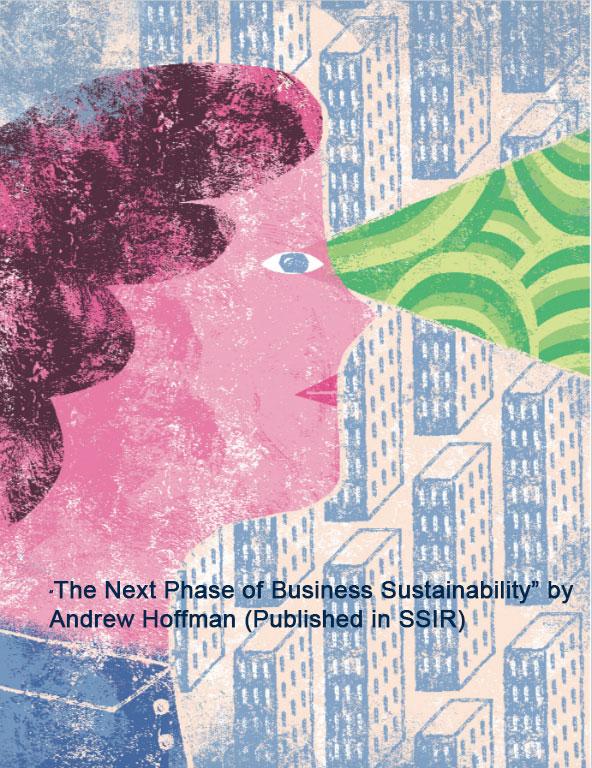Business Sustainability 2.0: Market Transformation (Adapted from “The Next Phase of Business Sustainability” by Andy Hoffman)

The concept of sustainability in business has become mainstream, and market forces have driven sustainability strategy. But, in its current form, business sustainability will not solve the root causes of the problems it is intended to address, says Andrew Hoffman in “The Next Phase of Business Sustainability,” recently published in the Stanford Social Innovation Review. Hoffman is the Holcim (US) Professor of Sustainable Enterprise at the University of Michigan and a faculty member of the university’s Erb Institute for Sustainability in Business. To enact change on a larger scale, business must transform the market. The Erb Institute calls this “market transformation,” and it is the next phase of business sustainability.
Hoffman explains that the previous phase, which the Erb Institute calls “enterprise integration,” has involved businesses responding to shifts in the market by integrating sustainability into what they already know how to do. But market transformation looks further forward—it involves business transforming the market to make it more sustainable.
And businesses are equipped to make it happen. “The market is the most powerful institution on earth, and business is the most powerful entity within it,” Hoffman writes. “Business transcends national boundaries, and it possesses resources that exceed those of many nation-states.”
To combat climate change more substantially, for example, companies have to do more than reduce their environmental footprint. As Hoffman explains, “the market must go carbon neutral and eventually go carbon negative. We don’t yet know how to do that, but we know that it cannot be done by one company or one product. It requires a change in the overall market.”
Continue reading systems and strategies for change at erb.umich.edu

